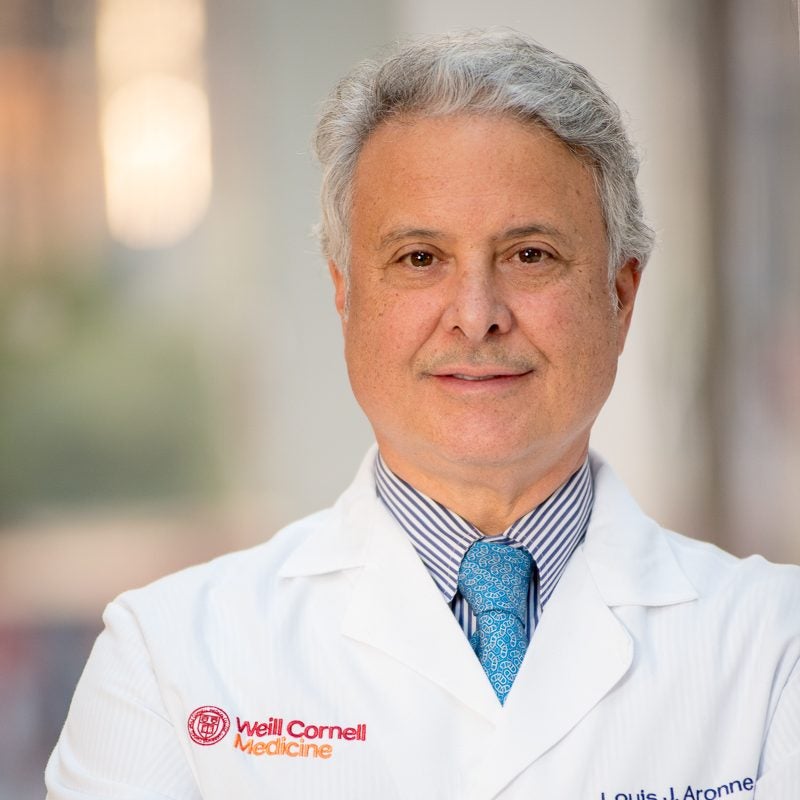
From the first success in a Phase III CRISPR trial to another Alzheimer’s disease drug showing efficacy in disease progression, 2023 has been a notable year for clinical trials.
According to GlobalData’s Pharmaceutical Intelligence Centre, there were 22,338 clinical trials initiated in 2023. The main indication of trials initiated in 2023 was oncology, followed by central nervous system. Of the trials initiated in 2023, the majority (36%) were Phase II trials. Also in 2023, 7,183 clinical trials ended, with 6,234 completing and 777 terminated.

Discover B2B Marketing That Performs
Combine business intelligence and editorial excellence to reach engaged professionals across 36 leading media platforms.
“The proportion of terminated to completed trials has increased by 2.7% from 2022 to 2023 as a lack of funding due to rising inflation and geo-political factors heavily impacted the industry. Despite a tough year with trial initiations hitting a five-year low, several innovative drugs have still managed to make it to market,” says Sonnika Lamont, clinical trials intelligence analyst for GlobalData.
GlobalData is the parent company of the Clinical Trials Arena.
Lilly moves into the Alzheimer’s space
Eli Lilly’s donanemab published successful results of its Phase III trial (NCT04437511) in Alzheimer’s disease. Donanemab targets deposited amyloid plaque and has been shown to lead to plaque clearance in treated patients. Among all participants, treatment with donanemab reduced amyloid plaque on average by 84% at 18 months, compared with a 1% decrease for participants on placebo.

US Tariffs are shifting - will you react or anticipate?
Don’t let policy changes catch you off guard. Stay proactive with real-time data and expert analysis.
By GlobalDataNeurologist Dr. Dennis Selkoe, co-director of the Ann Romney Center for Neurologic Diseases at Brigham and Women’s Hospital says: “It's taken a long time to get to lecanemab and donanemab, and I attribute that to the complexity of finding disease-modifying treatments that work well and can be given safely. We are now giving mild AD patients lecanemab (donanemab is not yet FDA approved) and are carefully monitoring the safety of these antibodies to the amyloid protein.”

Donanemab significantly slowed cognitive and functional decline for amyloid-positive early symptomatic Alzheimer's disease patients, lowering their risk of disease progression. Nearly half early-stage participants on donanemab had no clinical progression at one year.
The candidate is yet to be approved by either the European Medical Agency (EMA) or the US Food and Drug Administration (FDA).
Exa-cel shows promise as one time functional cure
One of the biggest successes of 2023 is arguably by Vertex Pharmaceutical and CRIPSR Therapeutics with its gene therapy exagamglogene autotemcel (exa-cel). Exca-cel will be branded as Casgevy for patients with sickle cell disease (SCD) and transfusion-dependent beta-thalassemia (TDT).
Three Phase III studies, CLIMB-111 (NCT03655678), CLIMB-121 (NCT03745287) and CLIMB-131 (NCT04208529) published preliminary data from 75 patients (44 with TDT and 31 with SCD) with follow-up of up to 37.2 months continue to demonstrate that exa-cel has the potential to be a one-time functional cure. ICER has calculated a health-benefit price benchmark (HBPB) for exa-cel to be between $1.35m to $2.05m. It has since been approved by the EMA and FDA.
Dr. Rodolphe Barrangou, editor-in-chief of The CRIPSR Journal, says that after the first approval, the rest were likely to follow. “I think it's extremely exciting and truly momentous,” Barrangou says. “It's an anticipated milestone; maybe for some people, it's more relief than anything else. I think it was a foregone conclusion and once the UK gave that approval, it was the first in a pending series.”

Lilly makes its way into the obesity market
Eli Lilly makes the list again with its obesity drug Zepbound (tirzapetide) which boasted efficacy results better that its main rival, Novo Nordisk’s Wegovy. The glucagon-like peptide-1 receptor agonist (GLP-1Ra) boasted results from a number of its Phase III trials in 2023.
Results from the SURMOUNT-3 clinical trial (NCT04657016) evaluating tirzepatide in adults with obesity or overweight with weight-related comorbidities, excluding type 2 diabetes showed patients achieved a decrease in body weight from the baseline of 21.1% weight loss after 12 weeks of intensive lifestyle intervention, for a total mean weight loss of 26.6% from study entry over 84 weeks.
Obesity specialist, Dr. Louis Aronne, medical director of the Comprehensive Weight Control Center in the Division of Endocrinology, Diabetes, and Metabolism at Weill Cornell Medicine says: “I think it will be a major player, I don't see why not with the level of efficacy we're seeing and the improvement in comorbidities. The thing that will really determine GLP-1Ra’s success are the studies where we're looking at what happens when you give this to people for five years. When you look at the positive results from the first CVOT in semaglutide, SELECT, we have every reason to be optimistic about the future of GLP-1Ra’s and obesity treatment,” Aronne explains.

Novo is fighting back however, having announced a head-to-head trial between its candidate CagriSema and Zepbound. According to ClinicalTrials.gov, the Phase III trial will enrol 800 participants with obesity but not diabetes. The primary endpoint is relative change in body weight at 72 weeks.
Merck meets nearly every endpoint with PAH candidate
Merck’s sotatercept has come to the end of a Phase III trial (NCT04576988) in which patients with pulmonary arterial hypertension improved on the six-minute walk test by an average of 40m. The novel investigational activin signalling inhibitor met the primary endpoint and eight of the nine secondary endpoints in the trial with results released in April 2023. The PDUFA date for the candidate is in March 2024.
Director of the Vascular Medicine Institute at the University of Pittsburgh, Dr. Stephen Chan says: “The Phase III data is very impressive in terms of being that first entrance into this sort of new era of drug treatment and management for patient population.”
First biologic for COPD showing promise
Regeneron Pharmaceuticals and Sanofi also announced that the Phase III NOTUS trial (NCT04456673) investigating dupixent (dupilumab) chronic obstructive pulmonary disease (COPD) trial showed that the candidate significantly reduced exacerbations, reaffirming positive results from the BOREAS trial. The NOTUS trial also confirmed that treatment with dupixent led to rapid and significant improvements in lung function by 12 weeks and were sustained at 52 weeks. If approved, the candidate could become first approved biologic for the disease.
From success to failure
It has not been smooth sailing for the industry in 2023 however with some highly anticipated and pivotal trials not meeting their endpoints or being terminated before they have concluded.
The year got off to a rocky start after Janssen, the vaccine subsidiary of Johnson & Johnson terminated a pivotal Phase III trial (NCT03964415) of its HIV vaccine candidate in January 2023. The study’s independent data and safety monitoring board (DSMB) determined that the candidate was not effective in preventing HIV infection compared to placebo among study patients. No safety issues with the vaccine regimen were identified.
Two Gilead Science’s magrolimab trials have been terminated in 2023, one in acute myeloid leukemia (AML) and one in higher-risk myelodysplastic syndromes (MDS). Both trials (NCT04313881 and NCT04778397) were investigating the candidate alongside azacitidine. The AML trial was paused by the FDA in August before being terminated after a report determined the candidate was ‘unlikely to demonstrate survival benefit compared to standard of care’. The candidate was bought by Gilead in an acquisition of Forty Seven for $4.9b in 2020.
Bayer also had to terminate a trial in its anti-coagulant drug asundexian early due to lack of efficacy. The Phase III OCEANIC-AF trial (NCT05643573) aimed to determine asundexian’s use as a treatment for people living with atrial fibrillation in a bid to prevent strokes or systemic embolisms.
The Independent Data Monitoring Committee (IDMC) found that asundexian was inferior in terms of efficacy when compared to the control arm of the trial. The committee recommended however continuing another Phase III OCEANIC-STROKE trial (NCT05686070) examining the use of the drug in stroke patients.
Sarepta Therapeutics was looking to have a positive 2023 after its Duchenne muscular atrophy candidate Elevidys was granted accelerated approval by the FDA in June. In October, the company published data from the Phase III trial (NCT05096221) which failed to meet its primary endpoint of statistical significance in total assessment score to improve motor function, compared to placebo.
What will 2024 bring?
There are also set to be a number of advances in 2024, including a branch out in GLP-1Ra’s with two Phase III trials coming to an end in 2024. University College London is conducting a Phase III trial (NCT04232969) investigating Baietta (exenatide) once weekly over two years as a potential disease modifying therapy for Parkinson's. The trial is due to complete in June 2024.
Dr Rajesh Pahwa, director of Parkinson Foundation Centre of Excellence at the University of Kansas Medical Centre, says he is excited about the concept. “I think it is something we should look at and see and I'm hopeful for it. It's an exciting time and I think it should be looked at as the mechanism of action makes sense.”
There is another GLP1-1Ra trial in patients with Alzheimer’s disease (NCT05891496). Danish GLP-1Ra giant NovoNordisk is operating the Phase III trial investigating effects of semaglutide on central and peripheral inflammation in patients with Alzheimer’s disease. The trial is due to end in May 2024.
Compass Pathways is running a Phase III trial (NCT05624268) of COMP360 (psilocybin) for treatment-resistant depression. Dr. Amy Reichelt, chief innovation officer for PurMinds NeuroPharma says if efficacious, it will open a new door of treatment for patients. “The outcomes of this trial will set the stage for the psychedelic drug industry and potentially open up a new paradigm of therapy and mental health treatments for the millions of individuals affected by depression worldwide,” says Reichelt.



